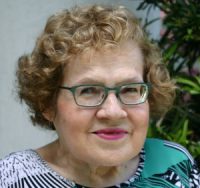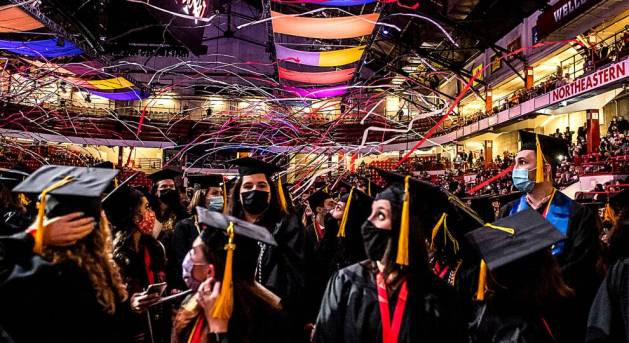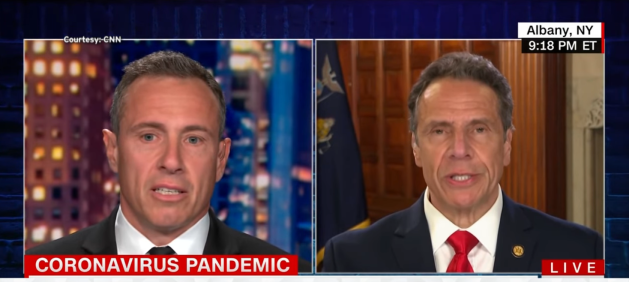
Rep. Mark DeSaulnier
Our faculty at Northeastern University’s School of Journalism recently voted unanimously to support two pieces of legislation aimed at addressing the local news crisis — a bill to make it easier for newspapers to become nonprofit organizations and a resolution that asks Congress to help reverse the decline of community journalism.
The bills were introduced in the House today by U.S. Rep. Mark DeSaulnier, D-Calif., and co-sponsored by Reps. Ed Perlmutter, D-Colo., Jamie Raskin, D-Md., and David Cicilline, D-R.I.
“As local newspapers are being bought up and taken over by large corporations, it is incumbent on Congress to act to protect this public good,” said DeSaulnier in a press release. “My legislation would do just that and ensure newspapers in every community can continue to provide high-quality local coverage that millions of American rely on and deserve.”
Professor Jonathan Kaufman, director of Northeastern’s School of Journalism, said, “The hollowing-out and disappearance of local news organizations imperils journalism, communities and our democracy. These measures provide a financial lifeline and tools for the next generation of journalists to pursue new models and innovation that bring more local news to communities.”
The bills are not related to the Local Journalism Sustainability Act, which would provide tax credits to subscribers, advertisers and publishers. The tax credit that would benefit publishers is part of President Biden’s Build Back Better legislation. DeSaulnier’s bills, by contrast, would address the problem that journalism is not among the activities that qualifies for nonprofit status, even though the IRS has approved such status for many news organizations over the years.
The full press release issued by Rep. DeSaulnier’s office follows.
Congressman DeSaulnier Introduces Legislative Package to Support and Preserve Local Journalism
Washington, D.C. – Today, Congressman Mark DeSaulnier (CA-11), along with his colleagues Congressman Ed Perlmutter (CO-07), Congressman Jamie Raskin (MD-08), and Congressman David Cicilline (RI-01) introduced two pieces of legislation aimed at supporting and protecting local journalism, and honoring its role in bolstering our democracy, holding government accountable, and informing the electorate. The Saving Local News Act (H.R. 6068) would make it easier for newspapers to become non-profits, allowing them the flexibility to focus less on maximizing profits and more on producing quality content. The local news resolution (H.Res. 821) recognizes the importance of local media outlets to society and expresses the urgent need for Congress to help stop the decline of local media outlets.
“Local journalism has been the bedrock of American democracy for centuries. I have seen firsthand how journalists for local newspapers have kept our community informed, educated voters, and held power to account,” said Congressman DeSaulnier. “As local newspapers are being bought up and taken over by large corporations, it is incumbent on Congress to act to protect this public good. My legislation would do just that and ensure newspapers in every community can continue to provide high-quality local coverage that millions of American rely on and deserve.”
“Local and accurate sources of news are becoming more and more important for our community and our country. I believe Congress has a role to play to ensure legitimate media outlets are able to better adapt to the changing media landscape and continue to inform Americans in every community,” said Congressman Perlmutter.
“An informed American public is essential to strong democracy,” said Congressman Raskin. “We cannot allow worldwide propaganda and conspiracy theories to replace hard local news based on local reportage. I’m proud to join Rep. DeSaulnier in introducing this important legislation that will give local news the flexibility it needs to thrive in a dangerously toxic media environment.”
“Over the past 15 years, one in five newspapers have closed, and the number of journalists working for newspapers has been slashed in half. We now live in a country in which at least 200 counties have no local newspapers at all,” said Congressman Cicilline. “This crisis in American journalism has led to the crises we are seeing today in our democracy and civic life. We cannot let this trend continue because if it does, we risk permanently compromising the news organizations that are essential to our communities, holding the government and powerful corporations accountable, and sustaining our democracy. I’m proud to support this resolution and the Saving Local News Act and thank Congressman DeSaulnier for his leadership and partnership in this work.”
“We commend Congressman DeSaulnier for introducing this important piece of legislation that recognizes the importance of nonprofit journalism to the American society. At a time when news deserts are a growing concern, we must ensure that we support all newsrooms in their efforts to provide high-quality journalism to their local communities. This journalism bill that would allow non-profit newsrooms to treat advertising revenue as nontaxable income could be helpful to a number of publishers,” said David Chavern, President and CEO, News Media Alliance.
“Community newspapers are exploring many new models for sustainability. Our newsrooms realize that without us, whole communities will lose their center of gravity. A nonprofit model is one that can work in some communities, but just establishing this status isn’t enough to keep the doors open and journalists at work. The need for revenue from a variety of sources, including local advertisers, remains acute. NNA supports the Saving Local News Act and thanks Congressman DeSaulnier for his work on behalf of local communities,” said Brett Wesner, Chair, National Newspaper Association and Publisher, Wesner Publications, Cordell, OK.
“Honest, truthful reporting is essential to informing our democracy at all levels. Without it, we won’t remain a nation of the people, by the people, for the people. Bills that help sustain local reporting that informs people about what their government representatives are up to, will help keep the citizens in charge of our country,” said George Stanley, President of the News Leaders Association.
“News organizations are looking at multiple ways to fund their organizations while continuing to deliver local journalism that is fundamental to a thriving Democracy. If news organizations want to pursue the nonprofit business model; it should be as accessible for established organizations as it is for news startups. Our members are known and trusted in the communities they serve and removing the hurdles to find philanthropic support would allow newsrooms to focus on serving their communities,” said Brandi Rivera, Publisher, Santa Barbara Independent and Board Member, Association of Alternative Newsmedia.
“Community newspapers are woven into the fabric of American society and provide accurate and trusted information that improves the lives of individuals in the communities they serve. It is no secret that newspapers face an increasing number of existential threats from online competitors which have left them with a decreasing number of revenue opportunities. This measure would provide news organizations with the means to better rise to these challenges and continue to play a vital role in their communities by holding the feet of the powerful to the fire and giving voice to the powerless,” said Jim Ewert, General Counsel, California News Publishers Association.
“Free Press Action supports this important legislation and applauds Congressman DeSaulnier for recognizing the importance of building, supporting and sustaining local nonprofit news operations,” said Craig Aaron, President and co-CEO of Free Press Action. “In too many places, corporate media have shrunk newsrooms or abandoned communities entirely. Nonprofit news has emerged as the future of local journalism, and it’s our best hope for keeping reporters on the beat focused on the needs of local communities, serving communities of color, and reaching so many people who have never been well served by the media. This bill will remove obstacles to nonprofit journalism, help launch more of these outlets, encourage more existing outlets to go nonprofit, and create more of the kind of high-quality journalism we need to inform our communities and keep our democracy thriving.”
“The hollowing-out and disappearance of local news organizations imperils journalism, communities and our democracy. These measures provide a financial lifeline and tools for the next generation of journalists to pursue new models and innovation that bring more local news to communities,” said Professor Jonathan Kaufman, Director of the Northeastern University School of Journalism.
“The health of the news industry is so precarious, all efforts to strengthen an industry so instrumental to democracy are well received. Thanks to Rep. DeSaulnier for stepping up,” said Jody Brannon, Ph.D., Director of the Center for Journalism and Liberty at the Open Markets Institute.
“The U.S. tax code needs this important update to make it easier for nonprofit news organizations to grow across our country. We’ve lost tens of thousands of local journalists over the last decade. That’s meant fewer journalists covering local government meetings, local business and even high school sports. Journalists are essential to holding power to account, watching over our democracy and providing a voice to the voiceless. We applaud Rep. DeSaulnier’s support of journalism. Our country was founded under the principle that a free press was the best way to make sure we have a robust democracy by having an informed electorate. We all have to fight now to save local news,” said Jon Schleuss, President of NewsGuild-CWA.
“The newspaper business model is broken. At a time when local journalism has never been more essential, journalists are losing their jobs across the country, leaving important stories untold. Compelling, original journalism does continue to drive significant advertising revenue—just not for newspapers. Big Tech giants, like Google and Facebook, have used their monopoly power to capture huge swaths of the digital advertising market, making it nearly impossible for many papers to chart a path forward in the digital age. This has allowed hedge fund vulture capitalists to scoop up scores of newspapers across the country—all of whom have been reduced to shadows of their former glory by a short-sighted cut, cut, cut approach. We welcome and applaud efforts to help news outlets continue to cover of the communities they serve. This legislation will create a path that communities can use to save their local papers. Local news is a key piece of American democracy, and while addressing the underlying problems Big Tech has created for journalists is complex, we have to do everything we can to allow for news to thrive,” said the Save Journalism Project.
“PEN America applauds the introduction of the Saving Local News Act – and the accompanying resolution on the importance of local news – as a welcome and needed step to support America’s journalism ecosystem. By making it easier for news organizations to become nonprofits, Congressman DeSaulnier’s legislation will open up a sustainable financial pathway for quality local journalism, recognizing its value as a public good. Enacting this bill will strengthen a fundamental pillar of our democracy, encouraging diverse reporting, civic engagement, and access to essential community information,” said Nadine Farid Johnson, Washington director of PEN America.
Since 2017, estimated daily newspaper circulation fell 11 percent from the previous year (Pew Research Center). Congressman DeSaulnier established a working group of dedicated Members of Congress from areas affected by a drought of high-quality journalism. Together they have been working to highlight this crisis and bring attention to the need to promote local journalism, including by holding a Special Order on the floor of the U.S. House of Representatives and introducing the Journalism Competition and Preservation Act (H.R. 1735), a bill to create a temporary safe harbor from anti-trust laws to allow news organizations to join together and negotiate with dominant online platforms to get a fair share of advertising profits.
Congressman DeSaulnier’s bill and resolution are supported by: News Media Alliance, National Newspaper Association, News Leaders Association, Association of Alternative Newsmedia, California News Publishers Association, Free Press Action, Faculty of the School of Journalism at Northeastern University, Local Independent Online News (LION) Publishers, Save Journalism Project, PEN America, Center for Journalism and Liberty at the Open Markets Institute, and NewsGuild-CWA.










